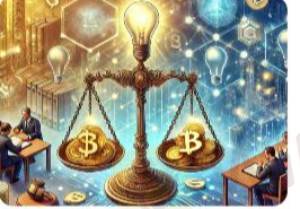
2025-02-15 03:36
In der IndustrieGlobalization vs. Deglobalization Trends.
#firstdealofthenewyearastylz
Globalization and deglobalization are two opposing trends that have shaped the world economy. *Globalization* refers to the increasing interconnectedness and interdependence among nations, promoting free trade, international investment, and cultural exchange. On the other hand, *deglobalization* involves reducing global integration and interdependence, often through protectionist policies, trade barriers, and a focus on domestic production and consumption.
The debate between globalization and deglobalization has been ongoing for decades. Proponents of globalization argue that it promotes economic growth, creates jobs, and increases access to goods and services. However, critics argue that globalization has led to income inequality, job displacement, and cultural homogenization.
Deglobalization, on the other hand, aims to protect domestic industries and promote self-reliance. However, it can also lead to reduced economic growth, higher prices for consumers, and decreased access to foreign markets.
Some of the key drivers of deglobalization include:
- *Rising nationalism*: Many countries are prioritizing national interests over international cooperation.
- *Economic inequality*: The widening income gap between rich and poor countries has led to concerns about the benefits of globalization.
- *Trade tensions*: The rise of protectionist policies and trade wars has disrupted global supply chains and increased uncertainty.
Examples of deglobalization include:
- *Trade barriers*: The imposition of tariffs and quotas on imported goods.
- *Non-tariff barriers*: The use of regulatory measures, such as sanitary and phytosanitary standards, to restrict imports.
- *Withdrawal from international agreements*: The decision by some countries to withdraw from international trade agreements, such as the Trans-Pacific Partnership.
Overall, the debate between globalization and deglobalization is complex and multifaceted. While globalization has lifted millions of people out of poverty, it has also created new challenges and inequalities. Deglobalization, on the other hand, aims to address these concerns, but risks reducing economic growth and increasing uncertainty.
Gefällt 0

johnson02
Broker
Aktueller Inhalt
In der Industrie
Event-A comment a day,Keep rewards worthy up to$27
In der Industrie
Nigeria Event Giveaway-Win₦5000 Mobilephone Credit
In der Industrie
Nigeria Event Giveaway-Win ₦2500 MobilePhoneCredit
In der Industrie
South Africa Event-Come&Win 240ZAR Phone Credit
In der Industrie
Nigeria Event-Discuss Forex&Win2500NGN PhoneCredit
In der Industrie
[Nigeria Event]Discuss&win 2500 Naira Phone Credit
Kategorie

Plattform

Ausstellung

IB

Rekrutierung

EA

In der Industrie

Markt

Index
Globalization vs. Deglobalization Trends.
 Hong Kong | 2025-02-15 03:36
Hong Kong | 2025-02-15 03:36#firstdealofthenewyearastylz
Globalization and deglobalization are two opposing trends that have shaped the world economy. *Globalization* refers to the increasing interconnectedness and interdependence among nations, promoting free trade, international investment, and cultural exchange. On the other hand, *deglobalization* involves reducing global integration and interdependence, often through protectionist policies, trade barriers, and a focus on domestic production and consumption.
The debate between globalization and deglobalization has been ongoing for decades. Proponents of globalization argue that it promotes economic growth, creates jobs, and increases access to goods and services. However, critics argue that globalization has led to income inequality, job displacement, and cultural homogenization.
Deglobalization, on the other hand, aims to protect domestic industries and promote self-reliance. However, it can also lead to reduced economic growth, higher prices for consumers, and decreased access to foreign markets.
Some of the key drivers of deglobalization include:
- *Rising nationalism*: Many countries are prioritizing national interests over international cooperation.
- *Economic inequality*: The widening income gap between rich and poor countries has led to concerns about the benefits of globalization.
- *Trade tensions*: The rise of protectionist policies and trade wars has disrupted global supply chains and increased uncertainty.
Examples of deglobalization include:
- *Trade barriers*: The imposition of tariffs and quotas on imported goods.
- *Non-tariff barriers*: The use of regulatory measures, such as sanitary and phytosanitary standards, to restrict imports.
- *Withdrawal from international agreements*: The decision by some countries to withdraw from international trade agreements, such as the Trans-Pacific Partnership.
Overall, the debate between globalization and deglobalization is complex and multifaceted. While globalization has lifted millions of people out of poverty, it has also created new challenges and inequalities. Deglobalization, on the other hand, aims to address these concerns, but risks reducing economic growth and increasing uncertainty.
Gefällt 0
Ich möchte auch kommentieren
Einreichen
0Kommentare

Es gibt noch keinen Kommentar. Mach den ersten

Einreichen
Es gibt noch keinen Kommentar. Mach den ersten